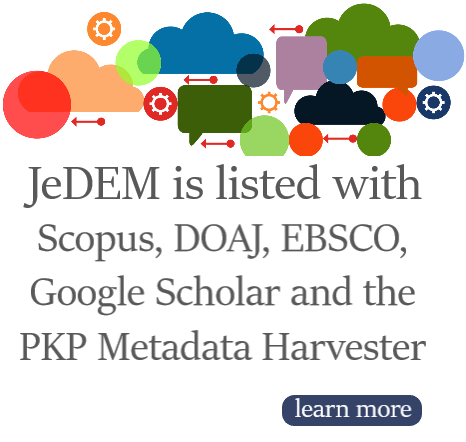Offering services and self-service in intelligent public administration
DOI:
https://doi.org/10.29379/jedem.v16i1.878Keywords:
intelligent public administration, self-service, offering services, intelligent software agentsAbstract
Self-service and offering services in public administration is a new concept that should be the basis of its service in the future. Here, we present a concept that should enable not only more efficient service but also the satisfaction of service users. Especially because it would provide them with the option to choose. To implement this concept effectively, it is necessary to implement intelligent public administration that can provide it. For this, we need knowledge bases and intelligent software agents. We will list some of the tools for implementing knowledge bases, and in one tool, we will create an appropriate database. We will use it to present the process of offering services. Here, we will mention the process of forwarding the "Birth Certificate" - a birth certificate that is part of self-service. We will mention offering a "Criminal Record Certificate" and "Title deed" as an example of offering services. These are a unique public administration data warehouse and a necessary means for user identification. There are also necessary legal prerequisites for implementing and using self-service and offering services in intelligent public administration.
Downloads
Metrics
Downloads
Published
How to Cite
Issue
Section
License
Copyright (c) 2024 Mladen Radivojević, Davor Radivojević, Đorđo Vasiljević, Luka Raguž

This work is licensed under a Creative Commons Attribution-NonCommercial 4.0 International License.

JeDEM is a peer-reviewed, open-access journal (ISSN: 2075-9517). All journal content, except where otherwise noted, is licensed under the CC BY-NC 4.0 DEED Attribution-NonCommercial 4.0 International














